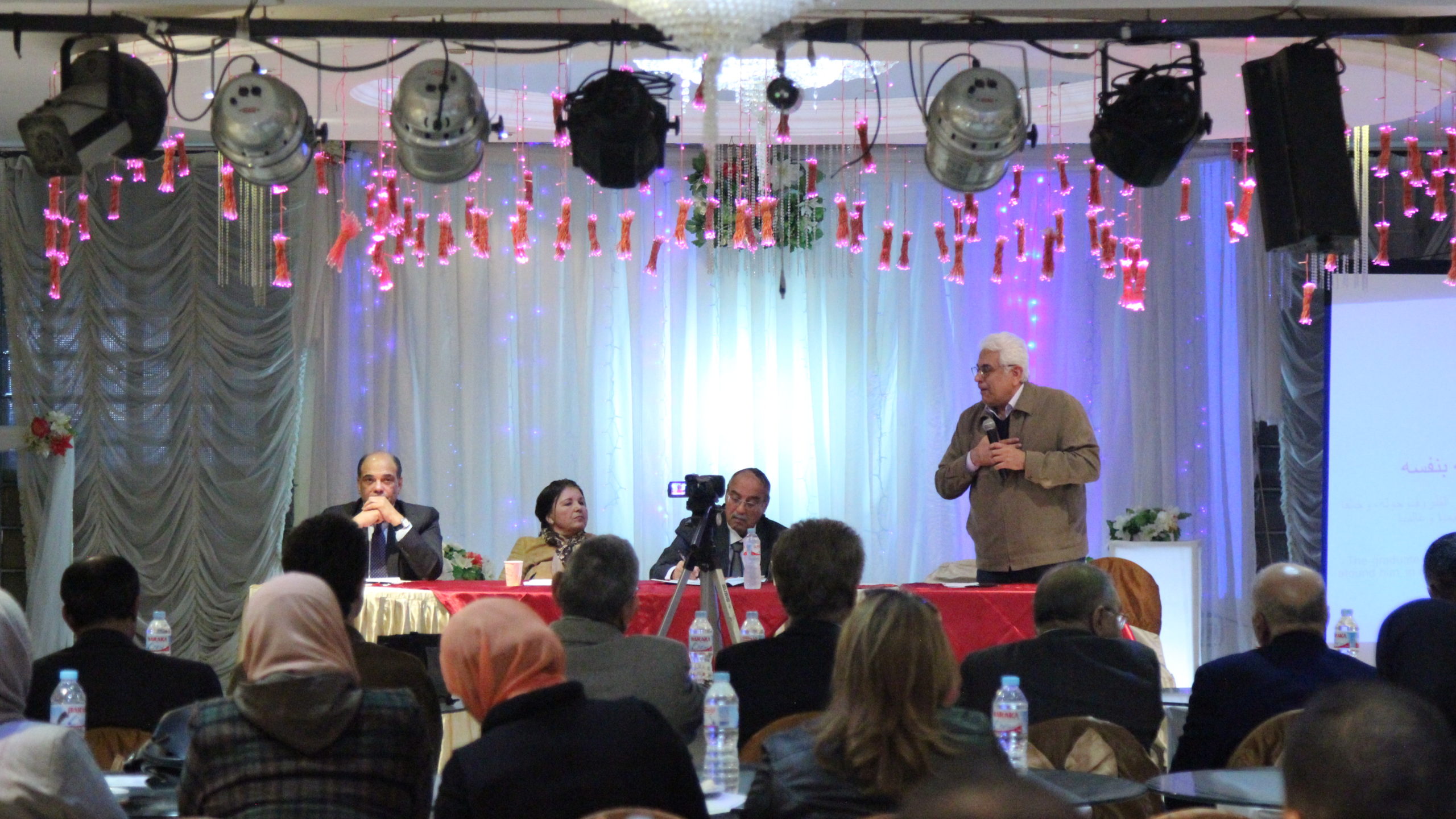At the invitation and organization of the Teachers Syndicate, Dr. Badrawi held a seminar at the Teachers Club entitled “Challenges of Education and Sustainable Development”, which was organized by the General Syndicate of Educational Professions, in the presence of Dr. Safwat Al-Nahhas, former head of the Central Agency for Organization and Administration, and member of the State’s Administrative Reform Committee, Dr. Magdy Rady, the official spokesman for The Cabinet, Major General Hossam Abul-Magd, former head of the books sector at the Ministry of Education, Dr. Hossam Al-Mandouh, Vice-Chairman of the Board of Directors of Al-Hussam Private Schools, artist Sameh Al-Sariti, artist Ahmed Salama, director Mohamed Fadel, journalist writer Mahmoud Bakri, and Dr. Mohabbat Abu Amira, professor of curricula and sciences Education at the Girls’ College of Arts and Sciences at Ain Shams University, Dr. Massad Owais, Chairman of the Board of Trustees of the Council of Youth Leaders for the Sons of the Nile, Dr. Sayed Khalifa, head of the Agricultural Syndicate, and a group of public figures. Dr. Hossam Badrawi, Chairman of the Board of Directors of the Nile Badrawi Foundation for Education and Development, said that Egypt’s vision 2030 The sustainable development of education began in 2014 through a specialized committee in the Ministry of Planning that included 70 educational experts, and it met for 17 months, and In it, the views of 480,000 people were taken on social media, and accordingly, Egypt’s vision in education 2030 was developed. “Badrawi” stressed that the sustainable development of education included 5 main axes: objectives, financing implementation, responsibility for the implementer, time period, and measurement indicators, pointing out that The government did not adequately publicize that plan socially. Badrawi added that there are also 5 axes for the development of education, the first of which is to provide the quality of education through the ministry’s knowledge of its future needs for at least 15 years while working to develop the Arabic language methodology and its quality, pointing out that the second of those axes is to implement a decentralized action plan to provide Health and education services, the third axis is concerned with the digitalization of education, and the fourth axis is the flexible interaction within the educational institution and coexistence with its events through communicating with others to build a healthy personality commensurate with the skills of the twenty-first century. Waiting for that job. Badrawi indicated that he called on the Prime Minister to join the Ministry of Education with the media, culture, youth and sports, and to establish an education commission and a human development center to chart a future for that sector, which needs sustainability and political will.

 Dr. Hossam Badrawi Official Website
Dr. Hossam Badrawi Official Website

